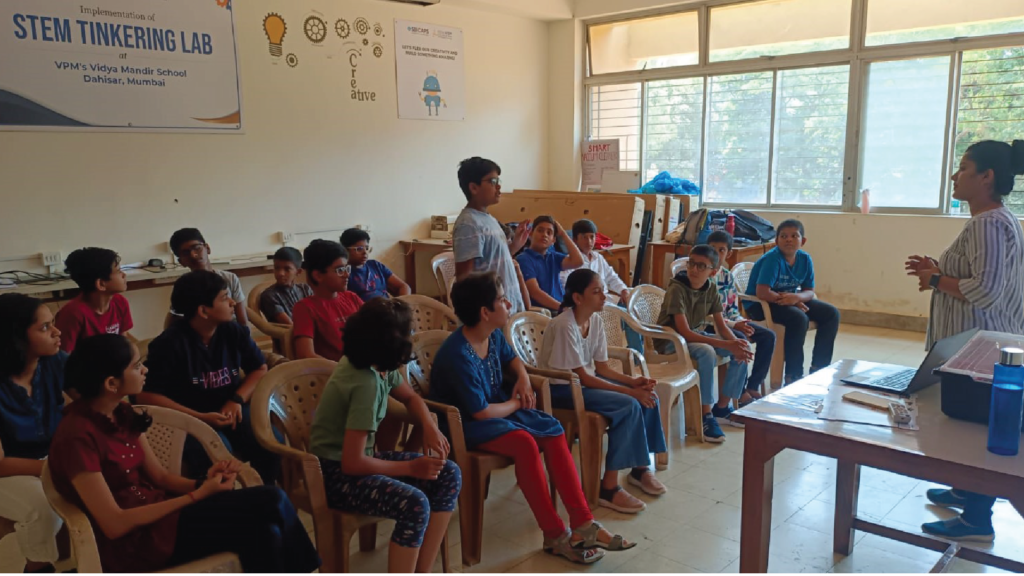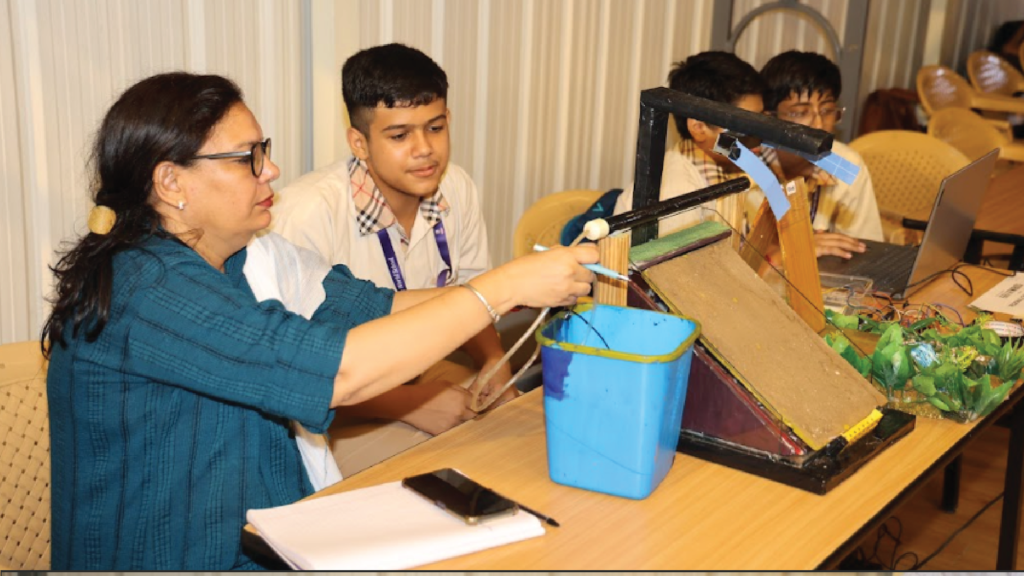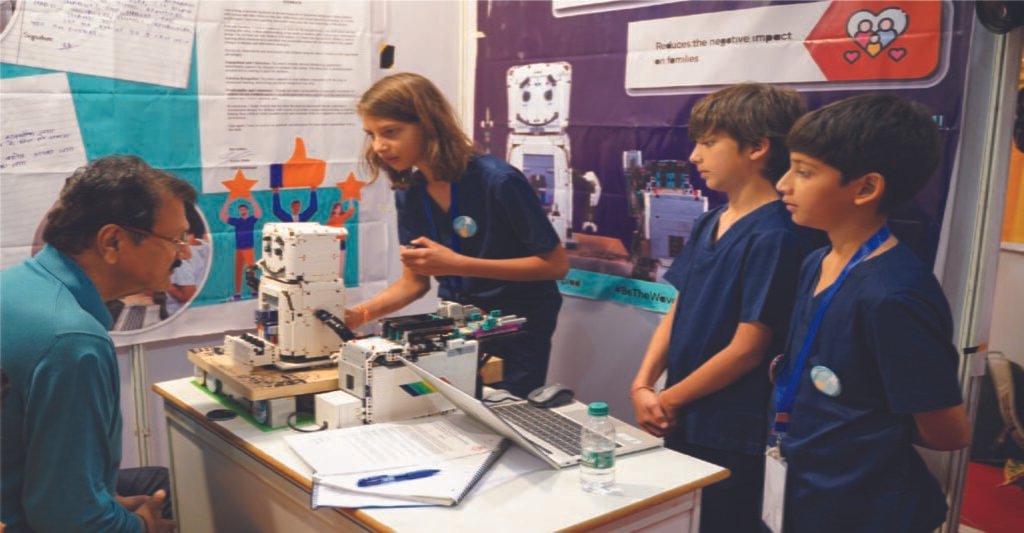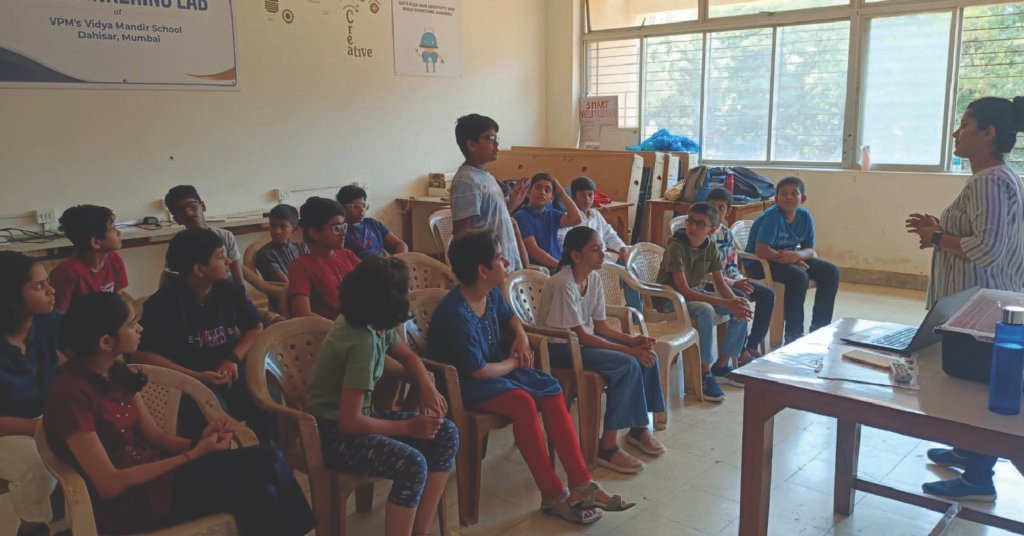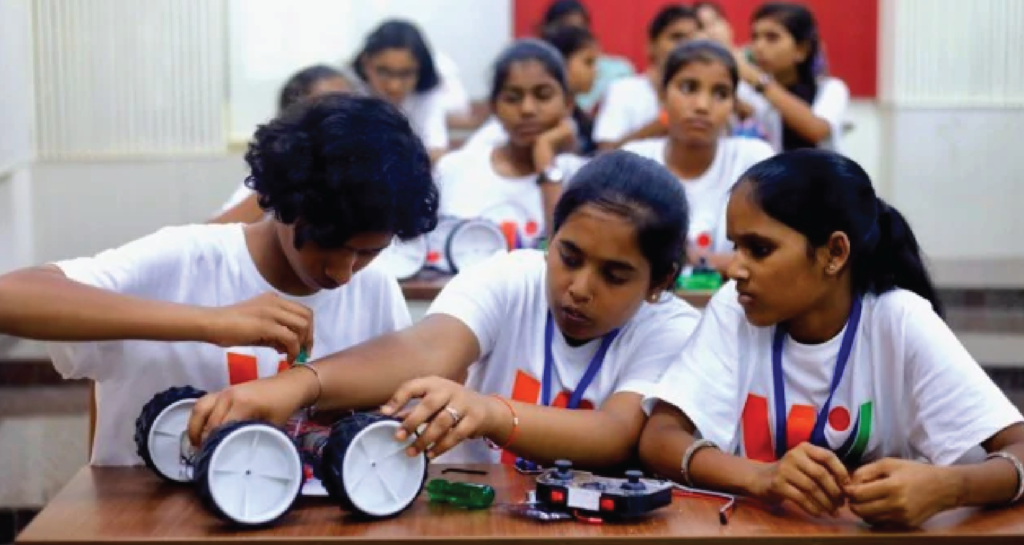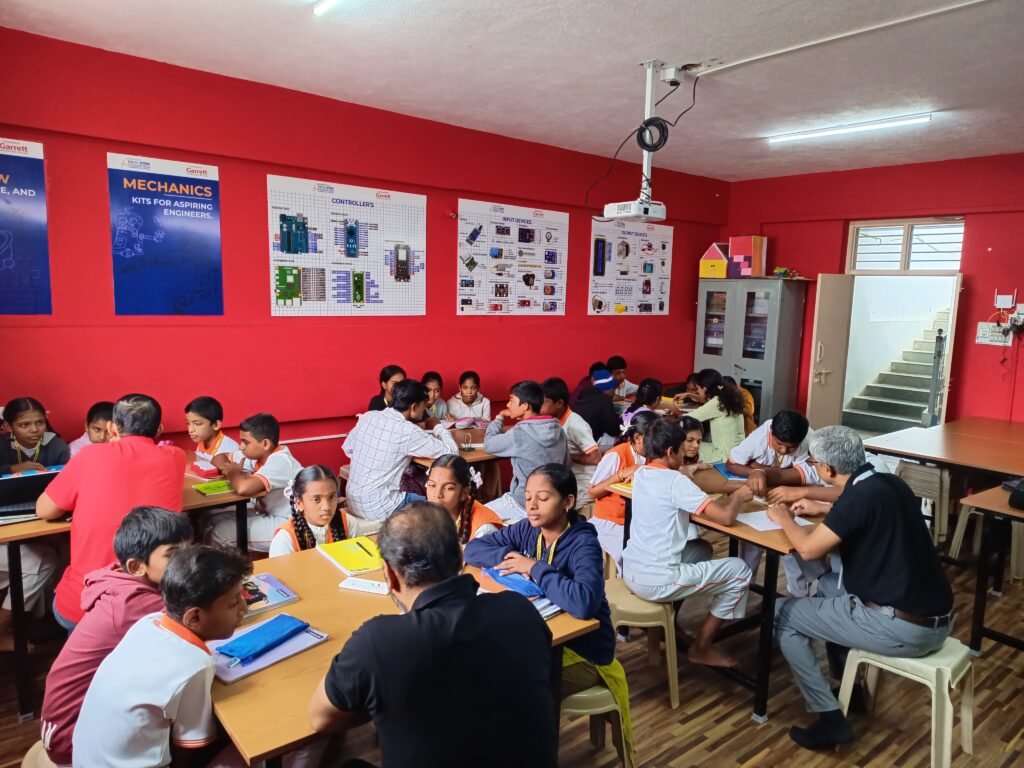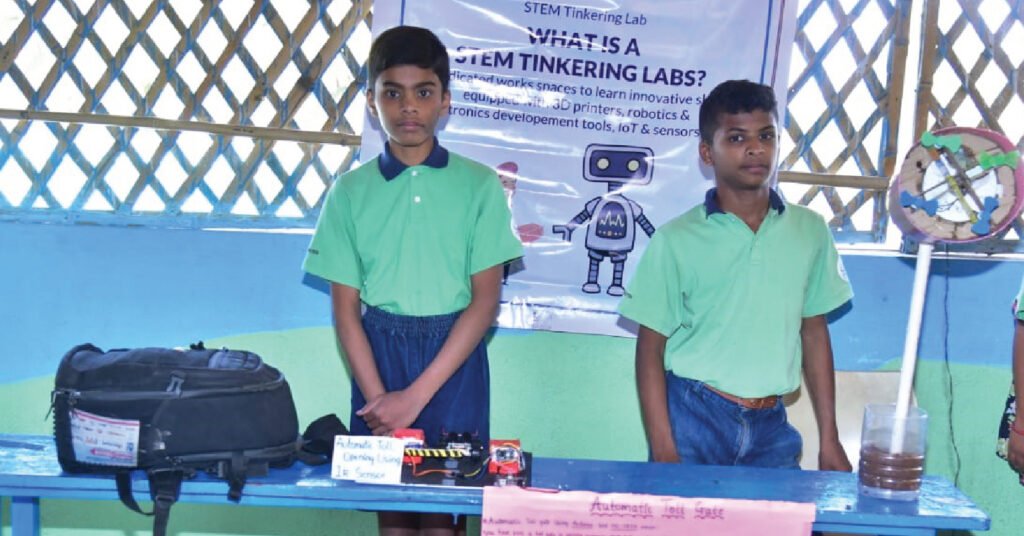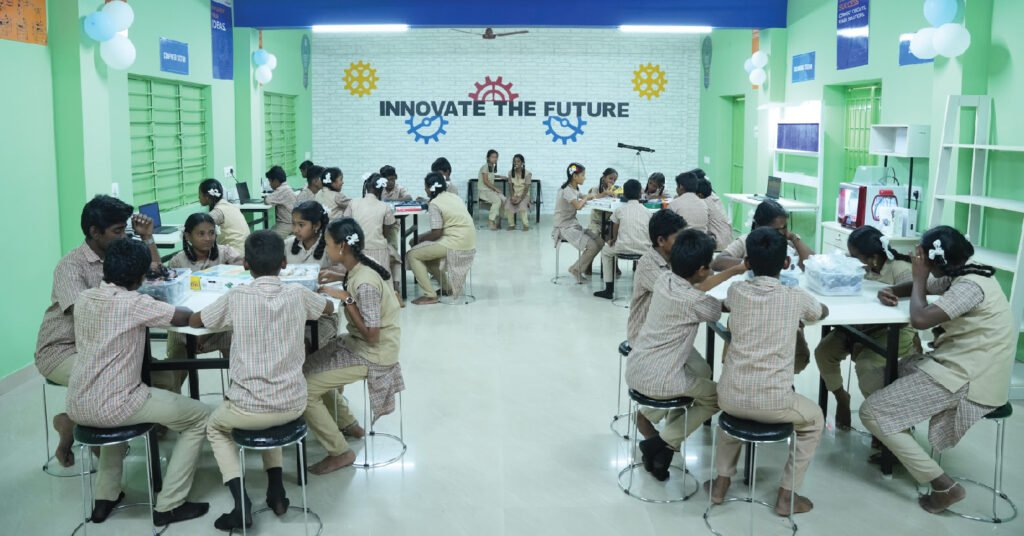STEM education offers a holistic approach to learning that equips students for the problems of the modern world by integrating Science, Technology, Engineering, and Mathematics. One of the main areas of STEM, robotics, provides practical experience in problem-solving, engineering, and programming. This combination encourages critical thinking, sparks creativity, and improves students’ comprehension of difficult subjects[…]
India’s concentration on STEM education is causing it to quickly become a worldwide center for innovation. Innovative STEM programs have become crucial in forming the next generation of thinkers, inventors, and problem solvers as the nation works to provide its students the skills they need to prosper in a technology-driven environment. These programs, which are[…]
In the face of growing environmental concerns, STEM education appears as a ray of hope, providing creative answers for environmental sustainability. The combination of science, technology, engineering, and mathematics becomes increasingly important as environmental challenges grow more pressing in order to directly address these difficulties and promote a healthy coexistence of humans and the natural[…]
The convergence of STEM (Science, Technology, Engineering, and Mathematics) education with entrepreneurship has been crucial in producing creative leaders in today’s dynamic environment. Entrepreneurial endeavors are stimulated by STEM education, which instills in people foundational talents, 21st-century skills, and a problem-solving attitude. Basis for Critical Analysis and Problem-Solving: Critical thinking and problem-solving skills are built[…]
STEM fields—science, technology, engineering, and mathematics—are becoming more and more important in today’s world. They tackle the pressing shortage of competent workers in sectors essential to technological innovation. Pupils who receive a STEM education are more capable of managing challenging circumstances, keeping up with technological advancements, and making valuable contributions to society. STEM education is[…]
In a world that is changing quickly, the gender gap in STEM (science, technology, engineering, and mathematics) disciplines continues to be a serious problem that impedes advancement. Even while the value of diversity and inclusion is becoming more widely acknowledged, obstacles still prevent women and members of underrepresented groups from participating fully in these vital[…]
The importance of Science, Technology, Engineering, and Mathematics (STEM) education cannot be overstated. The technological advancements and innovations of the 21st century are largely driven by STEM fields, making it essential for the future workforce to be well-versed in these disciplines. As the demand for STEM skills continues to rise, corporates have a unique opportunity[…]
On August 1, 2024, MSS V K Mate High School in Pune marked a significant milestone in its educational journey with the grand inauguration of a state-of-the-art STEM Tinkering Lab, also known as the Robo Siksha Kendra. This transformative initiative, aimed at fostering hands-on learning and sparking innovation among students, was made possible through the[…]
STEM education, which includes science, technology, engineering, and maths, is essential for influencing how societies will develop in the future, particularly in rural India. Accessing high-quality STEM education is extremely difficult in rural places, despite the field’s importance in promoting innovation and economic development. Students who want to work in these sectors are hampered by[…]
In the modern world, STEM fields—science, technology, engineering, and mathematics—have grown in importance. It responds to the urgent need for highly skilled labour in industries vital to innovation, development, and technological advancement. Pupils with a STEM education are more capable of managing difficult circumstances, staying current with technology, and advancing society. Today, with technology advancing[…]

